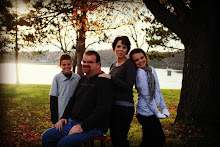Endurance
What if someone took a snapshot of you and made it an example for others so that’s all others know about your life? Some snapshots of our lives can be framed into a nice photo that accurately reflects a particular situation in our lives. However, our lives aren’t mere snapshots. Our lives are rich recordings, capturing our thoughts, emotions, relationships, situations, struggles, growth…every detail of every moment of our lives. Our lives are a marathon. We may stop to walk along the way. We might make a wrong turn and need to get back on track. We may enjoy the refreshing wind at times and sit by the side of the road in tears sometimes. Endurance is movement through the marathon of life, regardless of the varying types and speeds of movement. Endurance involves perseverance. Sometimes we persevere at a sprint, and sometimes we barely shuffle our feet.
When have your legs felt strong and you felt the refreshing wind in your face as you ran through life?
When have you been completely overwhelmed with the path ahead, your legs feeling like massive weights, and you wanted to stop for a long rest?
Since we have been made right with God by our faith, we have peace with God. This happened through our Lord Jesus Christ, who through our faith has brought us into that blessing of God's grace that we now enjoy. And we are happy because of the hope we have of sharing God's glory. We also have joy with our troubles, because we know that these troubles produce patience. And patience produces character, and character produces hope. And this hope will never disappoint us, because God has poured out his love to fill our hearts. He gave us his love through the Holy Spirit, whom God has given to us. Romans 5:1-5
When we have problems and trials, we can develop endurance. (We can also sit and mope and whine and become self-focused.) Endurance develops character. Character develops our hope in salvation. And yet…isn’t it our hope in salvation, our relationship with Jesus, our acceptance and understanding of God’s character, that helps us deal with our problems and trials in the first place?
You see, we often stop where we are because we’re waiting on something. We think we need more faith or we need more strength or we need more courage. We may even ask God for it. And then we wait and wait and wait….when we already have what we need! If you have a relationship with Jesus, you have his strength and courage. You may not always feel like you have it, but it’s there. We may feel completely drained and insufficient and incapable, but it’s not because we actually are. Standing on the promise of Romans 1:5.
The Holy Spirit gives us everything we need. The strength and courage we need is already in us, and not only is it in us, but the Holy Spirit fills us! You have access to God’s love, courage, strength, joy, discernment (and the list goes on…) inside you, accessible at all times. So why do you think we still want to sit beside the road, bury our head in our hands and quit?
My thoughts might not be even close to yours, but here are a few I’ve considered.
1. Even when we know God provides all we need through him, we try to rely into our own strength and courage instead of tapping into his.
2. We wait to tap into his strength and courage only when we’re completely exhausted. We try to hand him the baton, expecting him to run the rest of the way for us, not with us.
3. We rely on the Holy Spirit to guide, equip, and encourage us so infrequently that we’re not sure how to listen and rely on him.
We’re human. I don’t want this to become a crutch we rely on, but we have to admit, we’re going to struggle with our past baggage, current struggles, and future apprehensions. The key is whether we try to manage it all or rely on God to equip us to persevere and endure.
Our marathon doesn’t start the moment we get the phone call, receive the diagnosis, or discover the betrayal. We don’t run through the crisis and check it off our list. Our marathon is our entire life. Challenging uphill climbs. Downhill coasts. Crushed by crowds of people. Feelings of isolation. Encouraged by others. Discouraged as others fly by. Inadequacies. Doubt. Injuries. Milestones. Rejuvenation. It’s all part of the marathon. And you’re in training through the entire marathon. Increase your endurance through consistent training.
Training isn’t just a to-do list. It’s a to-be list. What you do prepares you for who you become. Who you are influences what you do. Both are intimately connected. What is God prompting you to do and who is he prompting you to become?
Adapted from Pure Purpose by Susan H. Lawrence. Check out Susan’s blog at http://purepurposebook.wordpress.com/ and follow Pure Purpose on Facebook at http://tinyurl.com/PurePurposeFB




